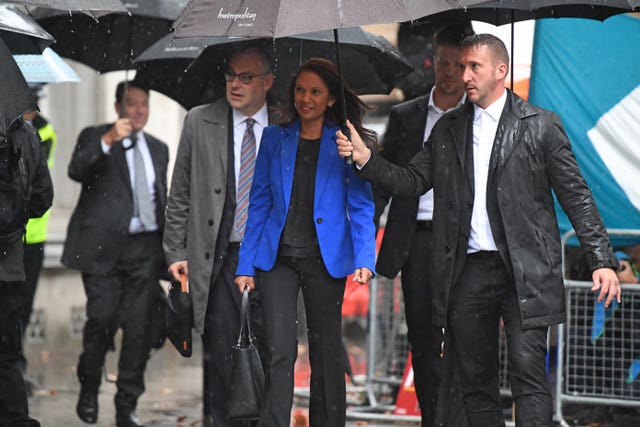Boris Johnson’s decision to suspend Parliament for five weeks was unlawful, the UK’s highest court has declared.
A panel of 11 justices at the Supreme Court in London gave their decision on Tuesday in a ruling on the legality of the prime minister’s advice to the Queen to prorogue parliament until 14 October.
The judges, led by the court’s president Lady Hale, heard appeals over three days arising out of legal challenges in England and Scotland – which produced different outcomes.
The panel held unanimously that Johnson’s advice to the Queen was unlawful because it had the effect of frustrating parliament.

The court also found the prorogation and was also “void and of no effect” – meaning parliament has not been suspended.
Announcing the result, Lady Hale said: “The court is bound to conclude, therefore, that the decision to advise Her Majesty to prorogue parliament was unlawful because it had the effect of frustrating or preventing the ability of parliament to carry out its constitutional functions without reasonable justification.”
At the High Court in London, the Lord Chief Justice Lord Burnett and two other judges rejected a challenge against the prime minister’s prorogation move by campaigner and businesswoman Gina Miller.
But in Scotland, a cross-party group of MPs and peers won a ruling from the Inner House of the Court of Session that Johnson’s prorogation decision was unlawful because it was “motivated by the improper purpose of stymieing Parliament”.

Miller’s barrister Lord Pannick QC, told the court on Tuesday that Johnson’s motive for an “exceptionally long” prorogation was to “silence” parliament, and that his decision was an “unlawful abuse of power”.
Sir James Eadie QC argued on the prime minister’s behalf on Wednesday that the suggestion the prorogation was intended to “stymie” parliament ahead of Brexit was “untenable”.
The prime minister advised the Queen on 28 August to prorogue parliament for five weeks and it was suspended on 9 September.
Johnson claimed the five-week suspension was to allow the government to set out a new legislative agenda in a Queen’s Speech when MPs return to parliament.
But those who brought the legal challenges argued the prorogation was designed to prevent parliamentary scrutiny of the UK’s impending exit from the EU on 31 October.

















